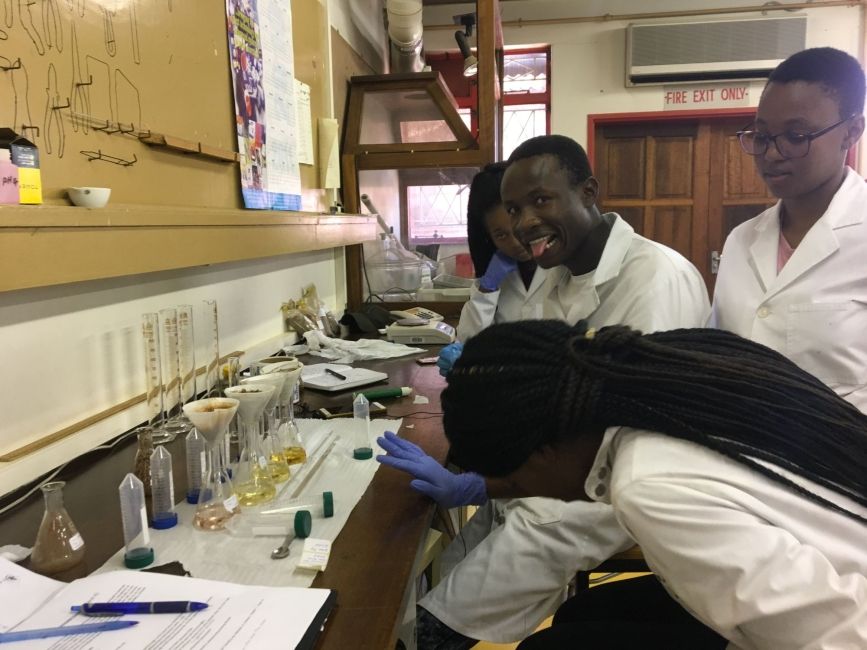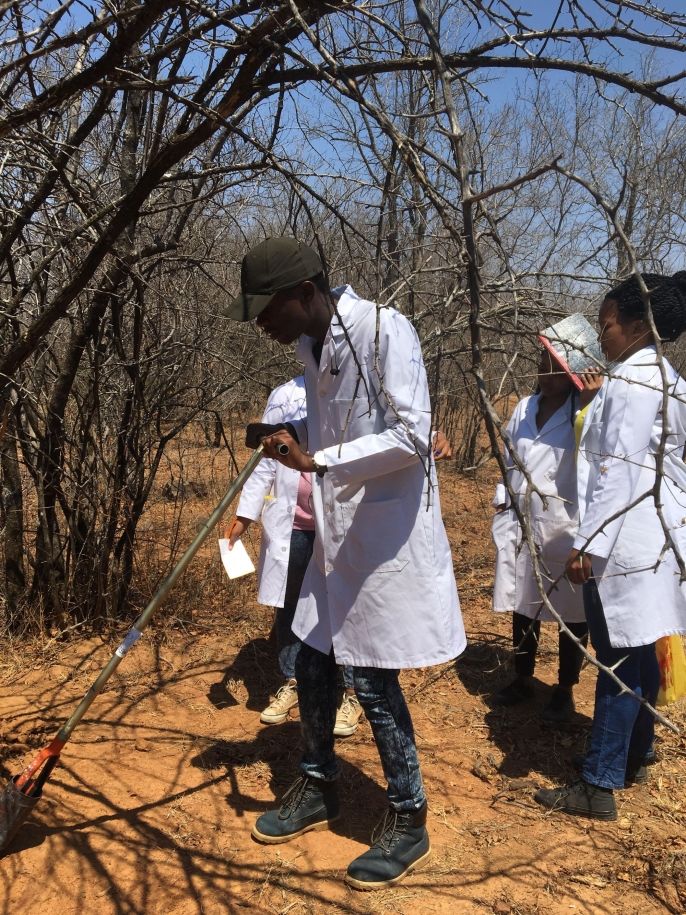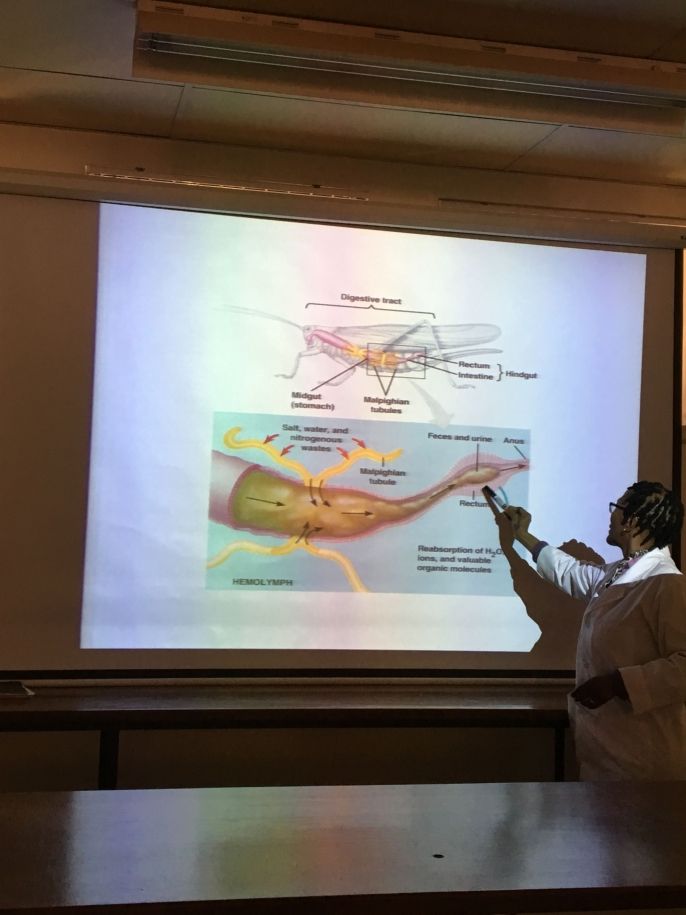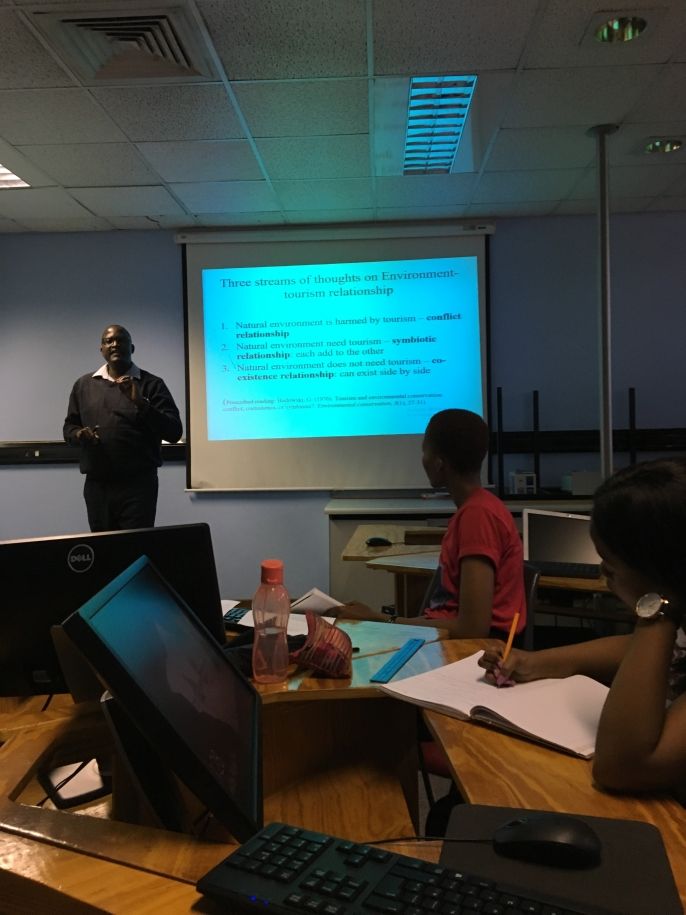How to Succeed at UB
When I made the decision to study abroad at UB, I was beyond excited for all of the educational opportunities present in the unique environment of Botswana. I had goals to intern at a local nature reserve and to participate in archaeological research. I also had personal goals to immerse myself in Tswana culture, develop deep relationships with locals, and travel around the region. However, it took more effort than I expected to achieve and balance my academic and personal goals.
First of all, I had many new relationships to navigate: new friends, new teachers, new classmates, new coworkers, and even a new family. On top of all of this, I was attending a new university. As a 4th year in college, I felt confident in the studying skills I developed during my two decades in the American school system. I knew I had a tendency to procrastinate but I could adapt quickly to unfamiliar situations and new challenges. However, one factor I did not consider was the amount of time and energy I would spend settling into my new environment which cost me in time I could dedicate to school.
You will get a lot of great advice from CIEE about the schooling style at UB, but I hope my personal experiences which are mostly relevant to science courses will add some insight into how to succeed at UB.
Do not expect to your classes to be the same as universities in the US. Students at UB have a lot more independence:
- rubrics are rare
- professors do not give due date reminders
- the Wifi frequently shuts down
- assignments are given very last minute
- and the syllabus often isn’t explained or even provided in some classes.
Most of all, distractions are everywhere. As a foreigner, everyone wants to talk to you and find out where you’re from. Batswana are very social and love to joke around in class which may give you a false impression of carelessness from the students. However, when it comes down to it, they work hard with little help.
Despite all of this, professors expect the same level of performance from you as would professors in the US. You cannot fall behind because teachers all space out assignments similarly: few assignments in the beginning, a comprehensive midterm in the middle and then another calm before the storm that is finals. This pattern leaves little forgiveness for procrastination.
Obviously, this advice will vary depending on your major. Sciences courses have much heavier workloads considering the lab component. I found labs at UB to be particularly difficult due to this lack of direction. In the US, my lab courses were taught by a TA who explained how to set up the report and perform data analysis. At UB, we received little instruction besides a general manual on writing lab reports. I ended up relying entirely on my classmates for help as they had been through the process before.
Most science tests are short answer and essay only, and they expect you to present everything you know about the topic given, not just what the question directly asks. Science professors also heavily emphasize diagrams, and they expect you to include drawings on tests even when not asked.
As for the liberal arts courses, the work load is very similar to the US, but it is vital to clarify directions and ask for the professor’s expectations. You can ask the professor, but the best source of information is your classmates. They will have the most honest answer about the professor’s grading style and preferences for test questions. The most important advice I can give is to make friends in every class because study buddies are your most valuable asset at UB.
On the bright side, although professors are less hands on, the grading scale is in your favor (100-80 is an A) because they emphasize hard work, not perfect work. Even though you may think you are prepared, you should take any helpful advice given to you from people who have experienced it. Professor’s teaching style can vary widely in different countries, and I learned it can be difficult to balance school work with the pressures of re-adjusting to life in a new culture. In the end, I was able to adapt and perform well despite these obstacles, and I now feel that I am a stronger student and person because of it.
Related Posts

Seeing more: A road trip to Swakopmund, Namibia
Over the mid semester break at University of Botswana, I decided to go on a road trip with 11 other exchange students, several being from the United States, but there... keep reading
What I Packed to Study Abroad in Gaborone, Botswana
A master list of the items you should bring to study abroad in Gaborone, Botswana - including tips and tricks from my student perspective at the University of Botswana campus.

Arthur Pounds Join UB Marathon: Persevering through the finish line
Authored by: Ruby Pitinyane On October 13, 2024, Arthur Pounds (AJ) took part in the University of Botswana (UB) marathon at the UB Stadium, marking a significant milestone for him... keep reading





